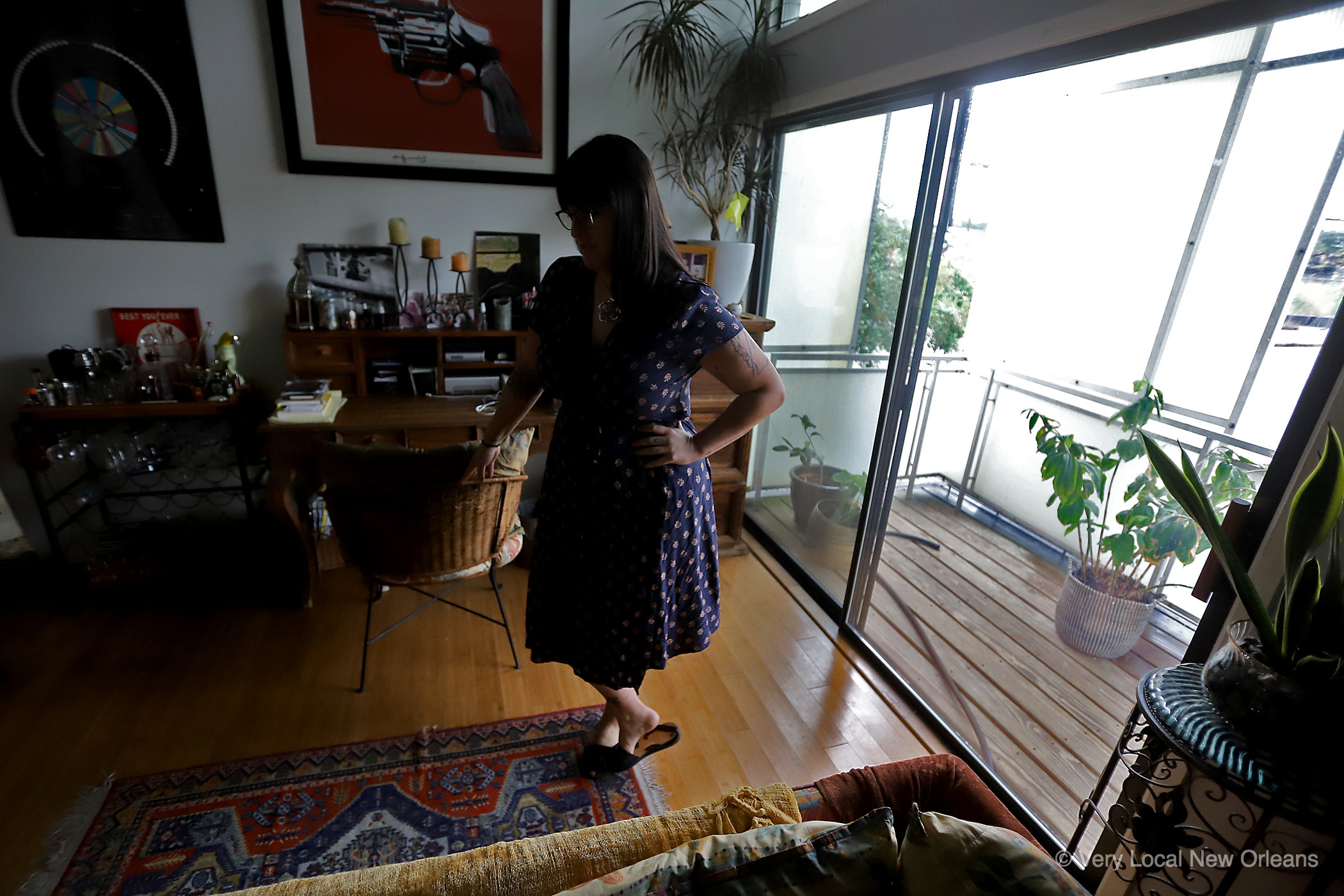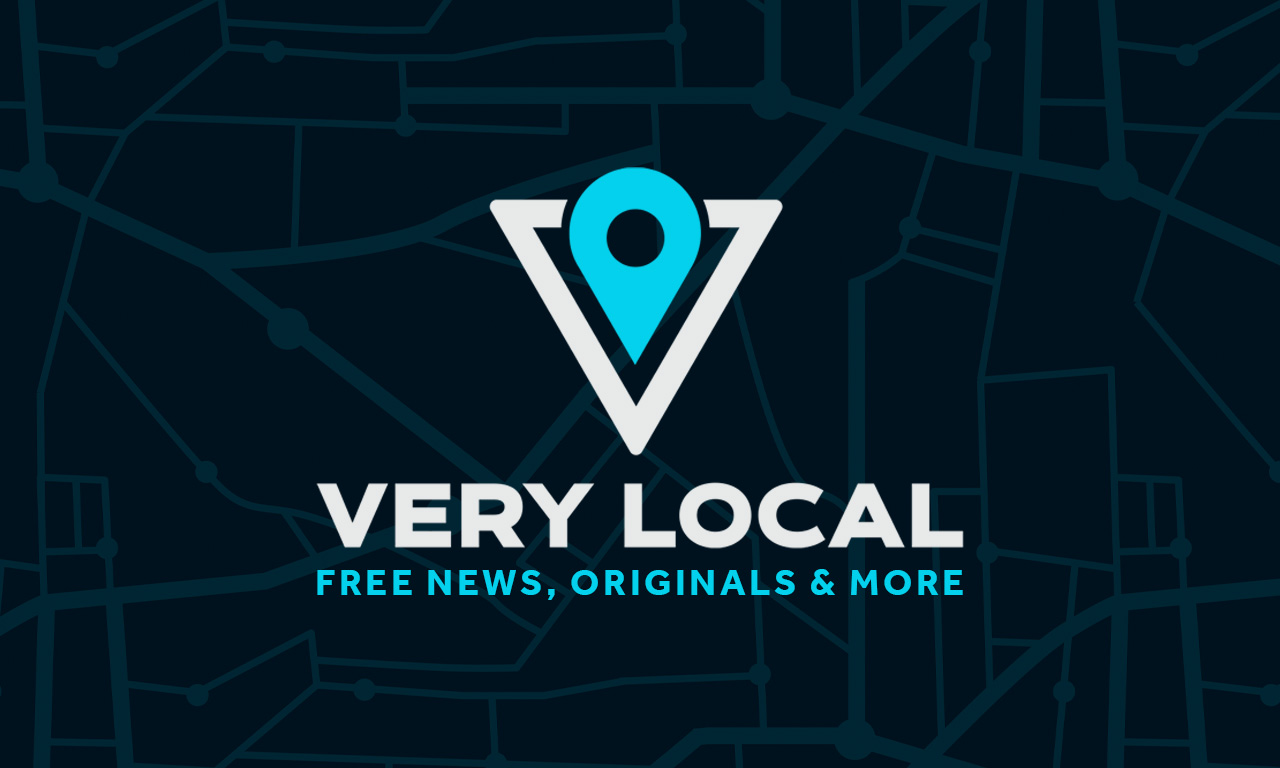A little more than a year ago, Paula Echevarria Zamora purchased her first home – a modern-style dwelling situated where the Milan neighborhood meets Central City. The native of Spain felt like she was officially establishing roots in New Orleans. She arranged framed artwork in the living room, displayed vintage glassware inherited from her parents, and lined her kitchen walls with Mexican Talavera tiles (a quarantine project). Shiny pots and pans hang on a rack near the stove; succulent plants sprout from empty LaCroix cans lining a windowsill.
Zamora’s eclectic home reflects who she is, but it also serves as a source of frustration. When the city shut down to slow the spread of the coronavirus, Zamora lost her job bartending at Portside Lounge, and she’s been unemployed ever since. She was initially collecting $600 in unemployment, but that amount has dropped to $247.
Since Zamora put her house in forbearance, her monthly mortgage payments have been temporarily suspended, but she’s expected to pay everything she owes – about $13,000 – in October.
“Where am I going to get $13,000,” said Zamora. “I’m here hoarding my money.”
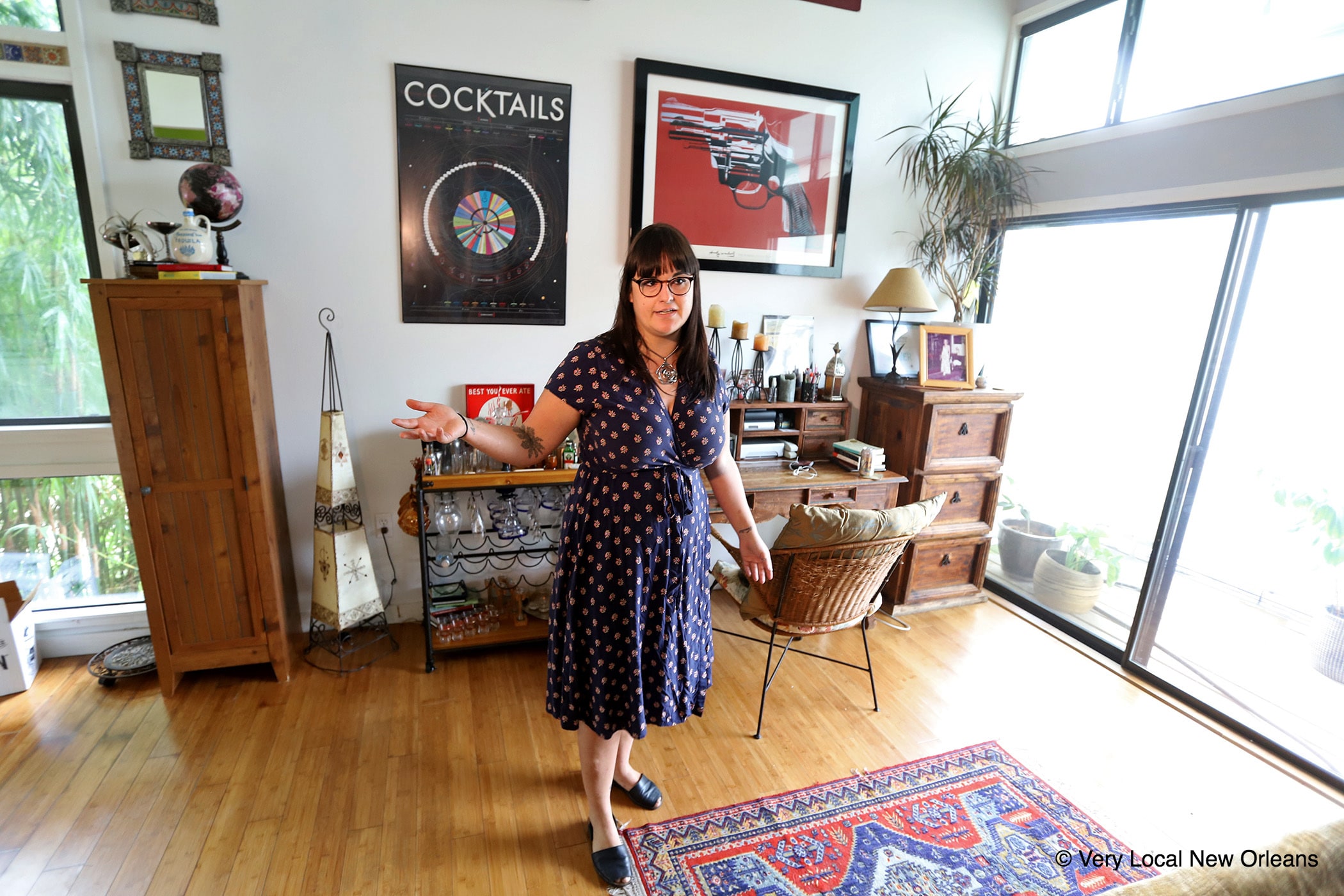
She’s one of the thousands of unemployed hospitality workers throughout the city who are worried about paying their rent or mortgage.
According to a Times Picayune | New Orleans Advocate article from Aug. 13, between May and June, the leisure and hospitality sector in metro New Orleans “lost the largest slice of jobs, down 31,000, or about 33.4%, compared to last year’s 61,700 jobs.” The article also reports that several hotels and restaurants planned to lay off 1,500 workers who will not be rehired for at least six months.
Although restaurants can operate at 50% capacity, bars remain closed.
The timing is especially cruel for Zamora. Although she earned undergraduate and masters degrees in journalism and worked for nearly a decade as a writer and TV producer, Zamora pursued bartending as a full-time job last October and joined the United States Bartenders’ Guild – or, as she puts it, discovered her “love for bartending.”
“People are like, ‘What do you want to do with your life?’… I’m doing it,” she said. “Bartenders are people’s therapists when they need to be, and they have a creative side. There’s more to it when people give it thought. And I love it. It thrills me.”
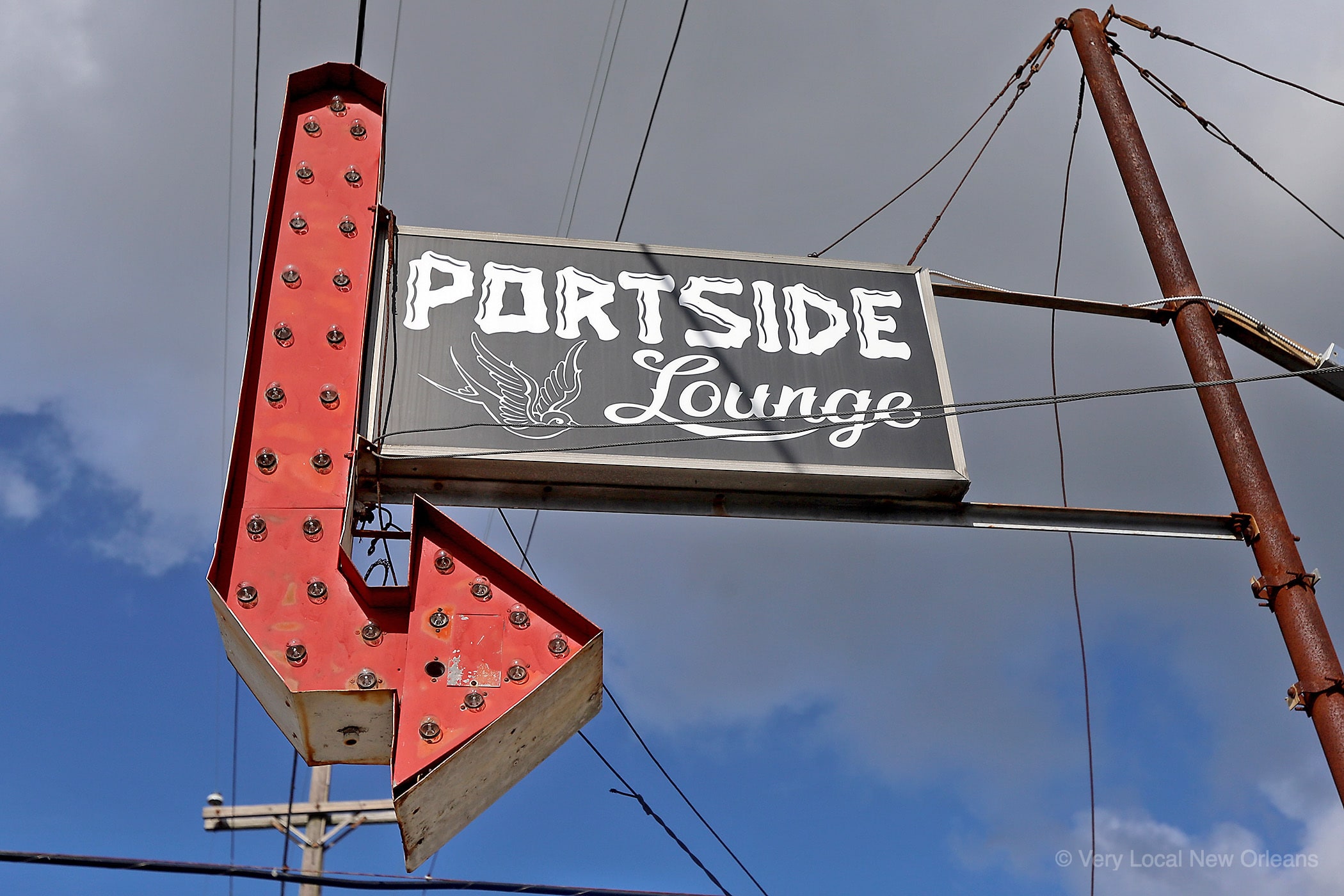
Zamora says fellow bartenders are fleeing New Orleans in search of an income elsewhere, but since she owns a house, she cannot leave.
“I was invested in the city. I was going to die in New Orleans,” she said. “I was going to be a part of the hospitality industry and the culture of New Orleans – and that’s what I fell in love with — because it reminded me so much of Spain.”
Although owning a home has placed her in a predicament, Zamora said she is aware that it could be worse — she could be facing eviction from a landlord.
Failures with rental assistance
“I’ve had absolutely no work at all.”
Amber Peterson is confronting that fear. She was a manager at The Maison on Frenchmen Street before the pandemic sent New Orleanians into quarantine.
“I really loved my job. I was the last one to lock the doors there on March 16,” said Peterson, who is now unemployed. “I’ve had absolutely no work at all.”
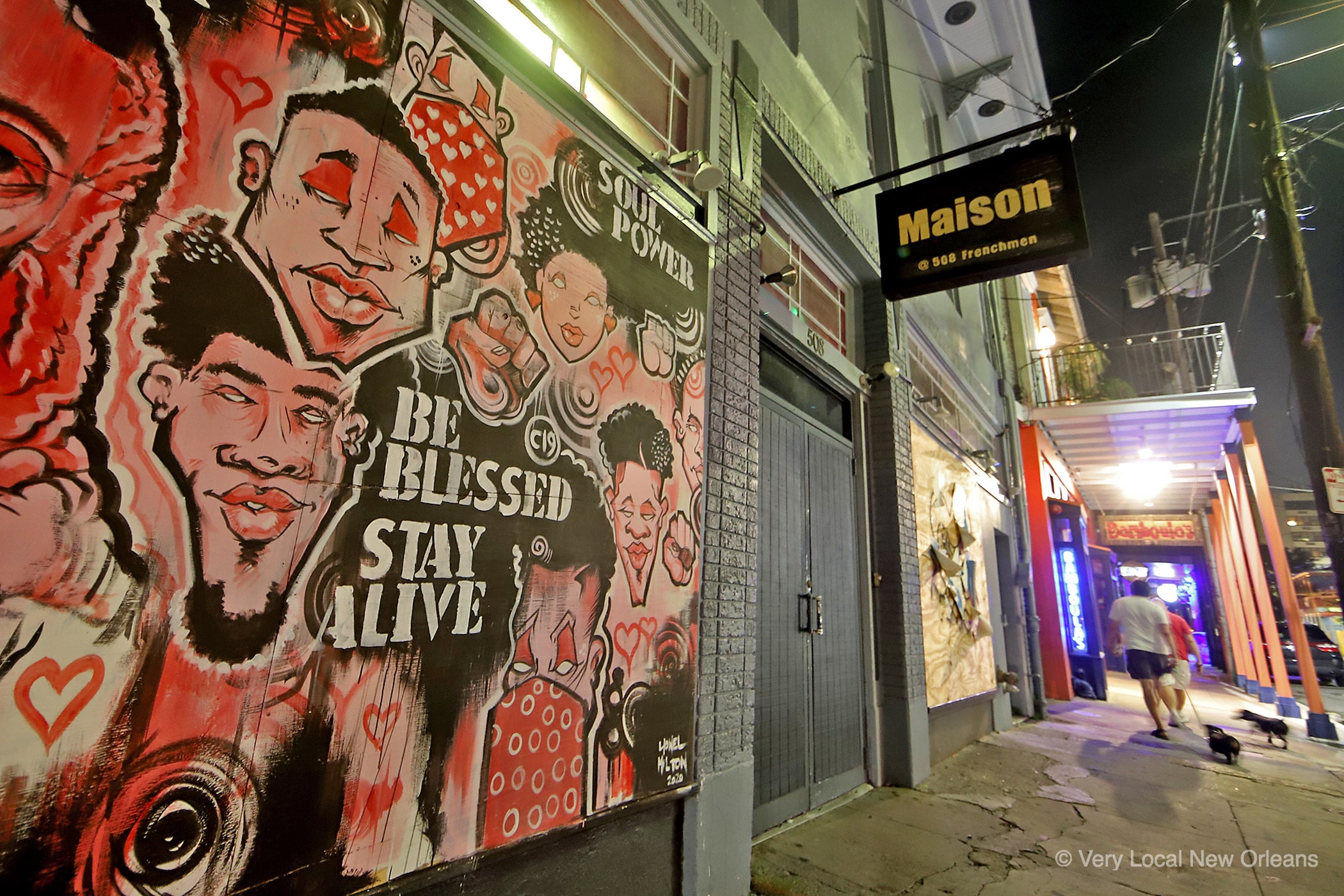
Peterson was initially collecting $167 in unemployment from the state, and then $707 when the federal economic impact payments arrived, but now she’s back to $167.
She lives in a 10-unit apartment complex in the Marigny, which she selected because it was within walking distance to work. But since Peterson is now concerned about paying for it, she has applied for several rental assistance programs – including Gov. John Bel Edward’s program, which was famously shut down after four days. She was actually denied for that program because her rent is $21 over market value. She pays $800 and it was capped at $779 for a municipality
“I started ringing bells and knocking down doors, and just calling random people at LHC (Louisiana Housing Corporation) and leaving messages,” said Peterson, explaining that a LHC caseworker eventually said her claim would be processed if her landlord agrees to take the fair market value payment of $779 a month.
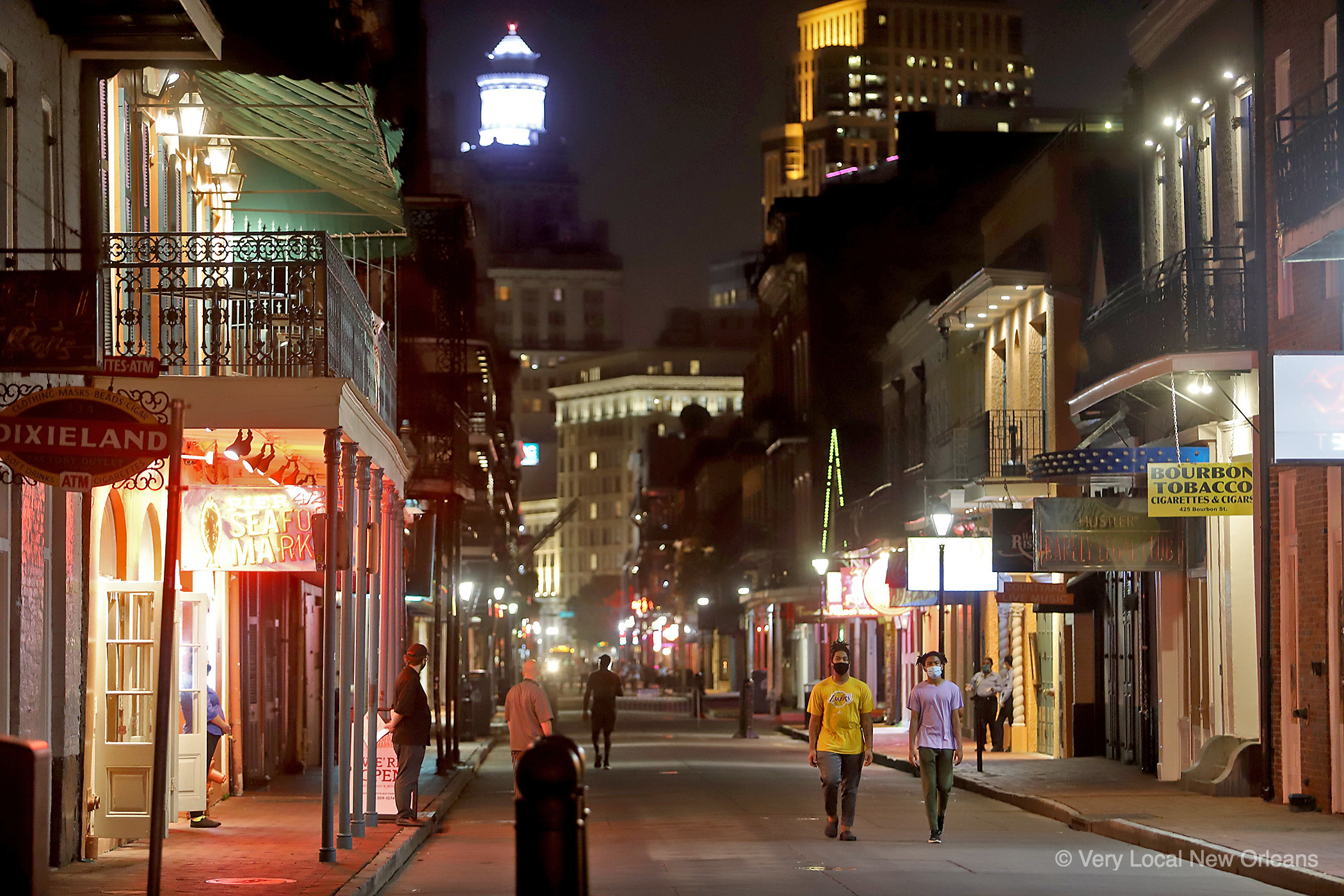
“I only work with the property manager. I told him that if it were a matter of the $21 a month difference, that I would happily make that up if that was permitted,” said Peterson. She is still waiting on their final ruling.
A slow-moving catastrophe
“Add COVID and you’ve made a recipe for disaster”
Before COVID-19, about 50,000 renters in New Orleans were struggling to make ends meet, because their wages were too low and housing costs were too high, says Andreanecia Morris, the president of the Greater New Orleans Housing Alliance (GNOHA).
“Add COVID and you’ve made a recipe for disaster,” she said. “A couple of things happened that delayed the disaster but have not abated it. The eviction moratorium issued by the governor, in combination with an eviction moratorium inside the CARES Act, prevented landlords with federally backed mortgages or federal subsidies from evicting tenants.”
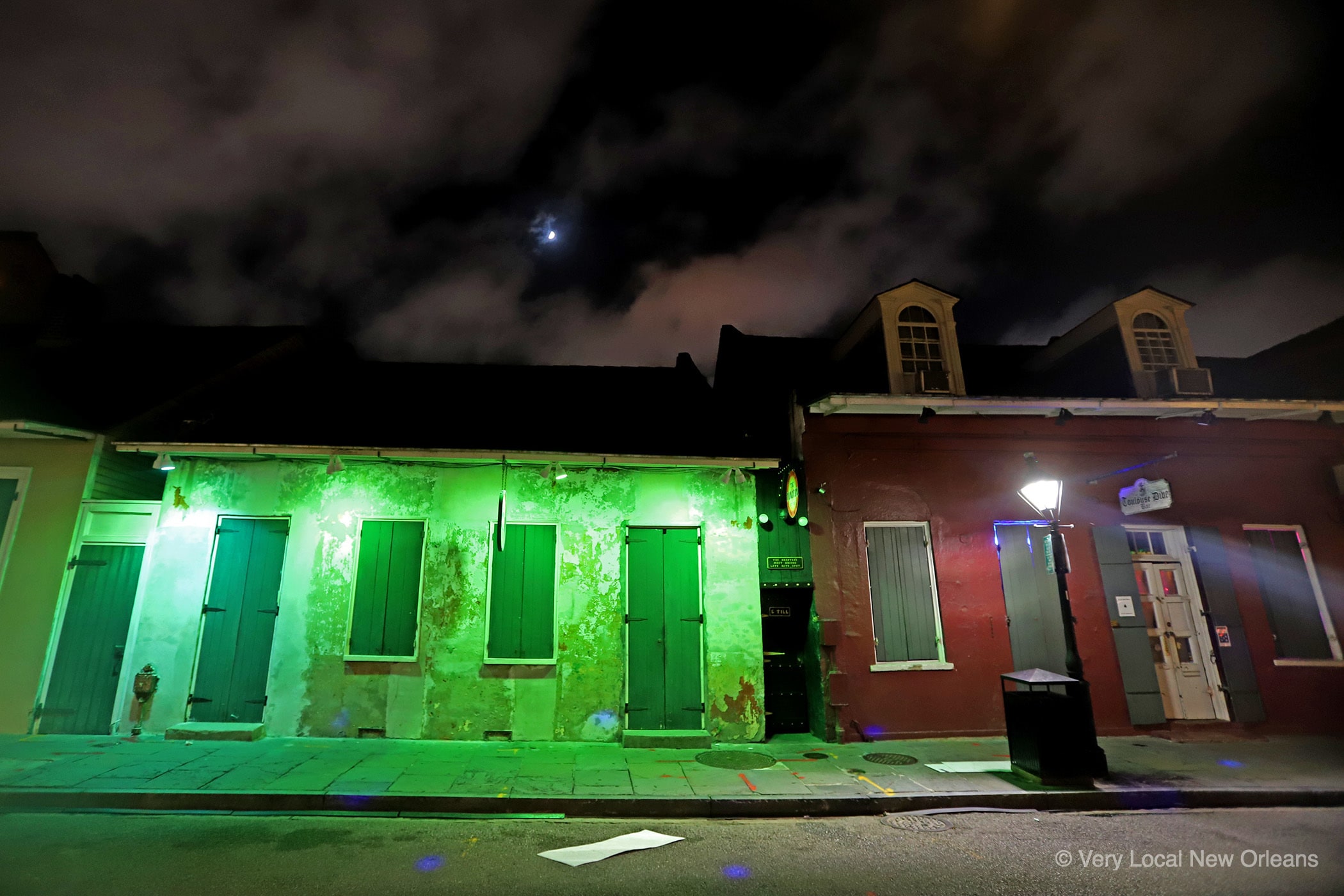
Although the federal coronavirus relief act expired at the end of July, landlords are required to give tenants 30 days notice before evicting them.
“The week of the 24th, coincidentally, the anniversary of (Hurricane) Katrina, we’re going to see even more evictions happening,” said Morris.
Landlords can’t take all the blame, however.
“Just like there are bad tenants, there are also bad landlords,” said Morris, before explaining that landlords need to keep capital flowing to pay for insurance, property taxes and mortgages. They must also pay skilled laborers for making any necessary repairs to the property.
“What folks have to understand is that there are financial costs to having someone living in your property,” said Morris. “I think some of the landlords are going to try to work with tenants, because they’re hoping the rental assistance will come through. They’re hoping they may go back to work.”
Looking ahead
“I’m a poor person and I’m at the mercy of the people with the power and the money.”
Even if Peterson receives rental assistance, her problems are not over. During the pandemic, she was diagnosed with endometriosis, so her medical bills have increased. But she lost her health insurance when she lost her job. Peterson also lives with post-traumatic stress disorder that she said complicates her search for a new job.
“I don’t go out in public much because I can’t handle the world as it is right now – with people not wearing masks, and people being aggressive,” she said, noting that she does not receive any federal aid, only city-assisted meals.
“Just like any other day in America, I’m a poor person and I’m at the mercy of the people with the power and the money. I’m at the mercy of my landlords, whether they’ll take $779. I’m at the mercy of my employers, as to whether or not they’ll open up again, or be able to open up again. And we’re all at the mercy of this ridiculous government that just won’t do anything to help us,” said Peterson. “For the most part, it’s just me trying to get up every day and struggle through whatever fresh hell they’re trying to put me through, just to be able to survive.”
“You can’t even put a plan together, because the plan depends on so many other moving pieces that you have no control over”
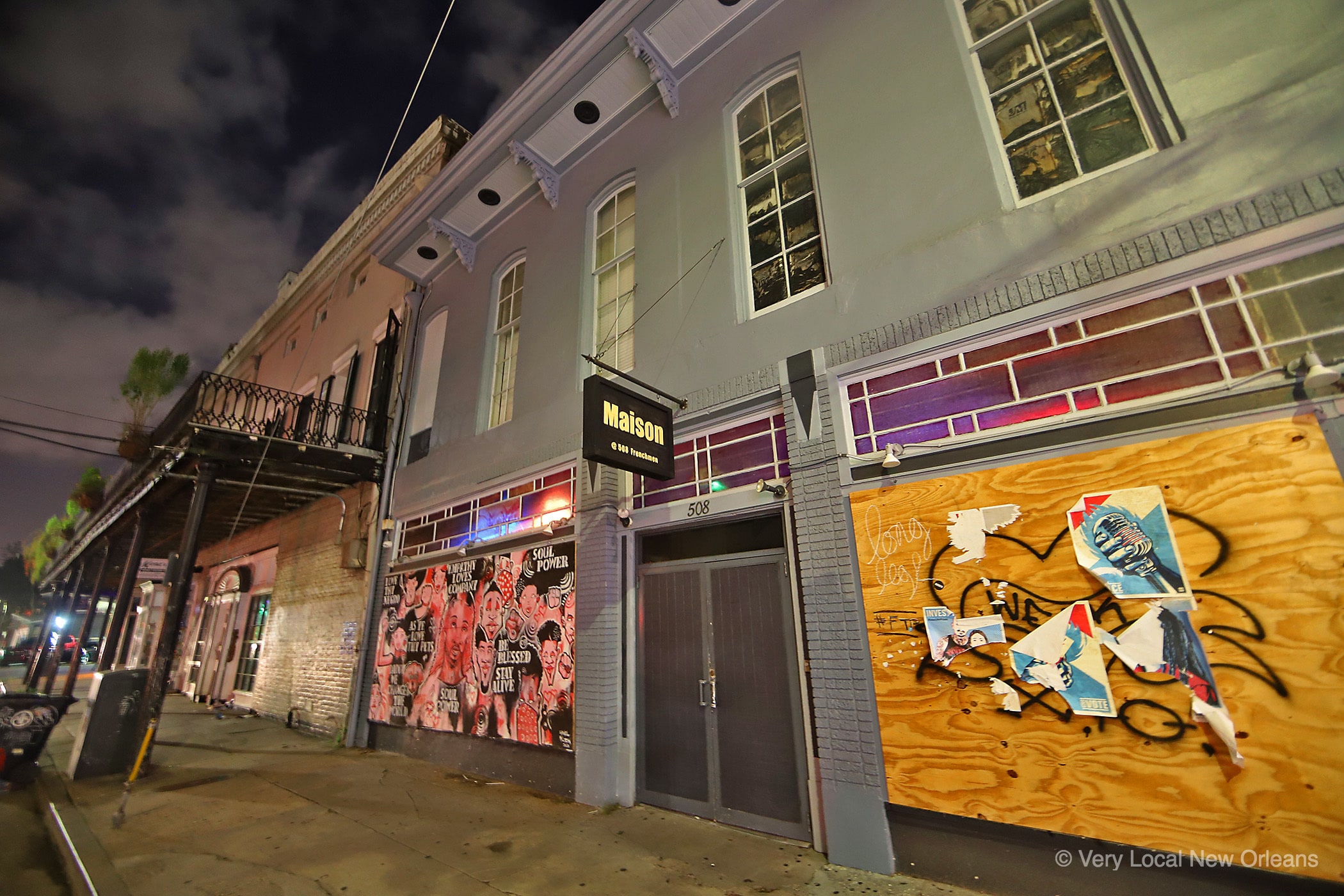
As a bartender, Zamora said she wishes she could be back on her feet interacting with customers, rather than collecting unemployment from home. But at the same time, she doesn’t want to put her health at risk by surrounding herself by people who don’t follow safety regulations.
“You can’t even put a plan together, because the plan depends on so many other moving pieces that you have no control over,” she said, pointing out that restaurants around the city are now closing for good, leaving a large pool of unemployed hospitality workers clamoring for the same few jobs.
Zamora is now studying for the Law School Admission Test (LSAT) and looking for an evening Juris Doctor degree program – but it’s a move she said she’s making out of reluctance.
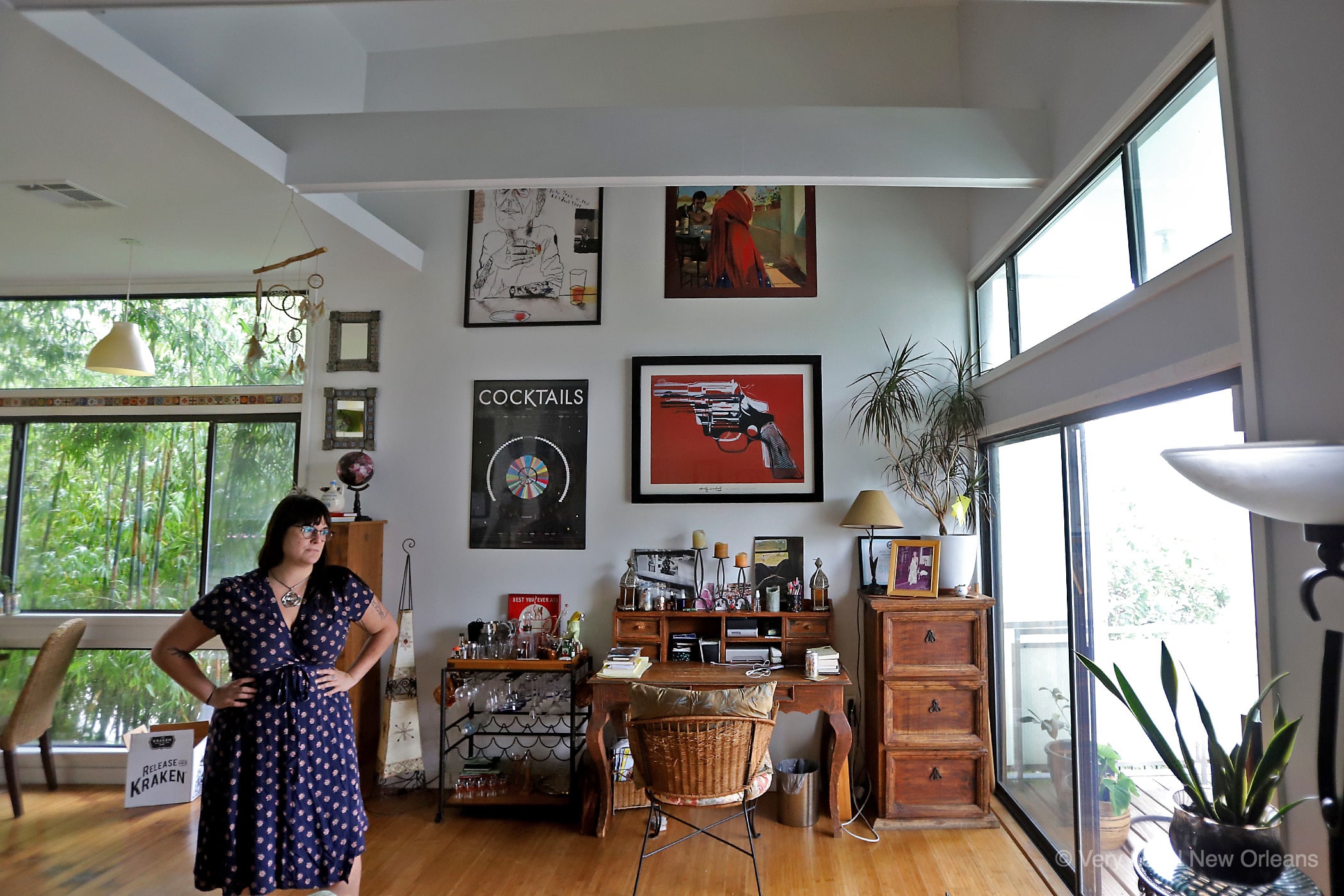
“You wouldn’t tell engineers or lawyers, ‘Oh, tough luck, go figure out something else to do with your life.’ Bartending is a career for a lot of us. This is what we love to do,” she said. “But unfortunately this country needs more people that care about making changes than bartenders right now. So if I can get into an evening JD program and still work during the day, then it’s something that I’m going to pursue, because the world has shown that they don’t care about us, no matter how much they need us.”
Related:
- Frustration, rage, grief: New Orleans restaurants, breweries forced to close due to hostile climate in COVID pandemic
- Broad Theater closes for second time during COVID pandemic
- K-Paul’s Louisiana Kitchen to close amid COVID-19 pandemic
- Collapse, COVID, and uncertainty: How businesses near Hard Rock Hotel collapse site are surviving

